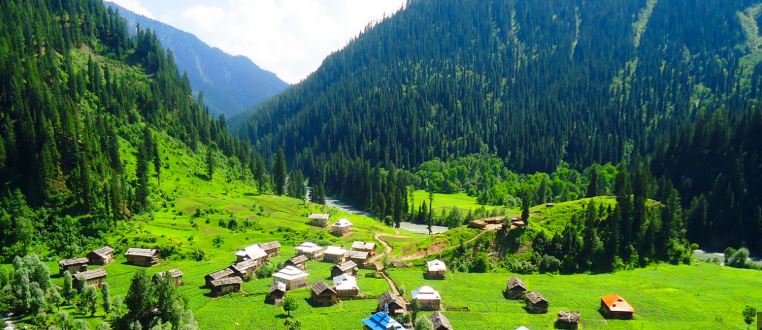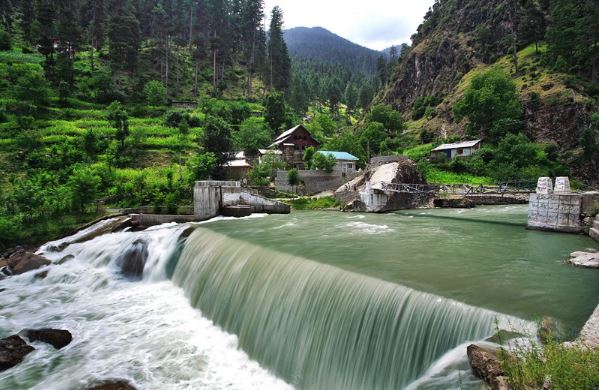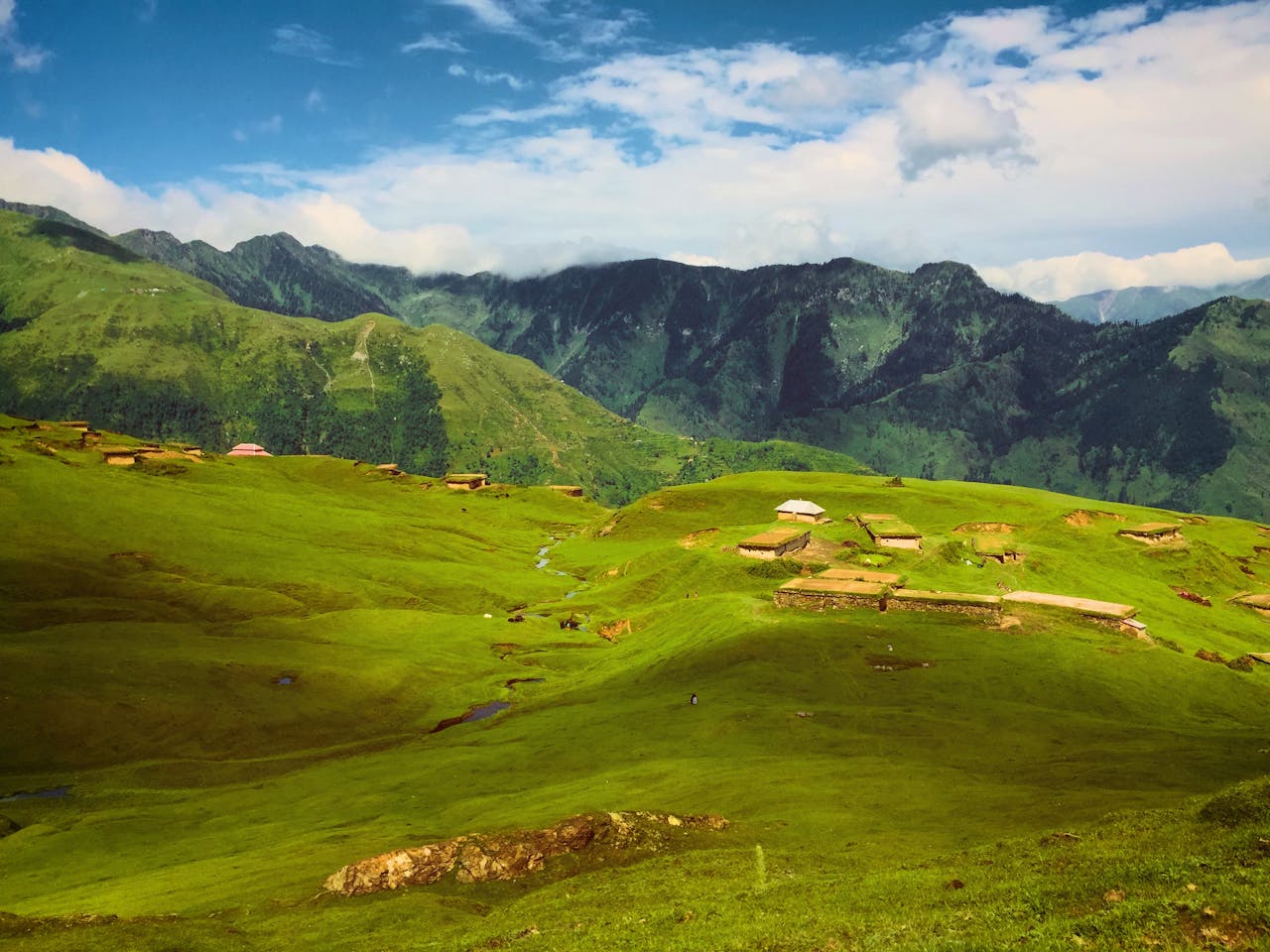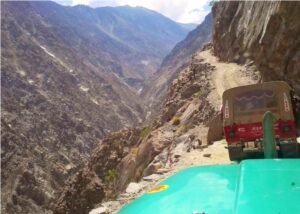Introduction
If you are looking for the eco-friendly travel guide to Azad Kashmir from Pakistan, you’re in the right place. Whether you’re drawn by the towering mountains, pristine rivers, or peaceful villages, Azad Kashmir is a dream destination for nature lovers. But with its growing popularity, it’s more important than ever to travel in a way that respects the environment and supports the local communities. This guide will help you plan a responsible trip that leaves a positive impact. From sustainable transport options and eco-conscious accommodations to local food and cultural tips, you’ll find everything you need to explore Azad Kashmir in a mindful and meaningful way. Let’s dive into how you can enjoy the beauty of this region—while helping to preserve it for future generations.
Table of Contents
Why Eco-Friendly Travel Matters in Azad Kashmir
Azad Kashmir, with its untouched forests, crystal-clear rivers, lush green valleys, and snow-covered peaks, is one of Pakistan’s most ecologically sensitive regions. As tourism in the area continues to grow, it brings both opportunities and challenges. Without proper care, increased footfall can lead to long-term environmental damage, threatening the very beauty that draws people here.

1. Preserving Natural Ecosystems
Azad Kashmir is home to diverse ecosystems and rare wildlife, including the Himalayan monal, snow leopards, and black bears. Irresponsible tourism—like littering, deforestation for resorts, and off-road vehicle use—can destroy habitats and disrupt these fragile ecosystems. Eco-friendly travel helps minimize these threats by encouraging sustainable practices, such as using designated hiking trails, supporting conservation efforts, and avoiding activities that harm local flora and fauna.
2. Reducing Pollution and Waste
Plastic bottles, food wrappers, and other waste left behind by tourists are becoming an increasingly serious issue in popular spots like Ratti Gali, Neelum Valley, and Arang Kel. These pollutants not only spoil the landscape but also endanger wildlife and contaminate local water sources. Choosing to travel with reusable items, carrying your trash back, and saying no to single-use plastics can make a big difference.
3. Supporting Local Communities
Many residents of Azad Kashmir rely on tourism for income—whether through running guesthouses, guiding treks, or selling handmade crafts. Eco-friendly tourism focuses on benefiting these local communities instead of large outside corporations. By choosing homestays, eating at locally-owned restaurants, and buying handcrafted souvenirs, you help boost the regional economy in a fair and sustainable way.
4. Protecting Cultural Heritage
Azad Kashmir has a rich and unique culture that includes traditional music, Pahari languages, local crafts, and centuries-old customs. Mass tourism without cultural sensitivity can erode these traditions. Eco-travel encourages meaningful cultural exchange and respectful interaction, which helps keep these traditions alive.
5. Keeping Tourism Sustainable for the Future
Sustainable tourism isn’t just about today—it’s about ensuring that future generations can also enjoy the pristine beauty of Azad Kashmir. By traveling mindfully, you play a role in keeping the region clean, green, and welcoming for years to come.
Planning Your Eco-Friendly Trip from Pakistan
Before heading off to the breathtaking valleys of Azad Kashmir, it’s important to plan your trip in a way that aligns with eco-friendly and sustainable travel principles. Responsible tourism starts well before you hit the road—every choice you make, from your mode of transport to what you pack, has an impact.
Here’s how you can thoughtfully plan your journey to Azad Kashmir while minimizing your carbon footprint and contributing positively to the environment and local communities.
Choose Sustainable Transportation
Transportation is one of the largest contributors to a traveler’s carbon footprint. But with a bit of planning, you can significantly reduce your environmental impact.
Public Transport Over Private Cars
One of the best ways to travel green is by using Pakistan’s public transportation network. Buses and vans run regularly from major cities like Islamabad, Lahore, and Rawalpindi to Muzaffarabad, the capital of Azad Kashmir.
- Daewoo Express, Faisal Movers, and local services provide efficient and budget-friendly options.
- Shared jeeps or vans are available for inter-valley travel in areas like Neelum and Leepa Valley.
Using public transport not only reduces fuel usage but also helps cut down on traffic congestion in narrow mountain regions.
Carpooling or Renting Hybrid Vehicles
If you prefer driving, consider carpooling with friends or family, or joining a group tour to reduce the number of vehicles on the road. Another great option is to rent a hybrid or electric vehicle, if available.
- Use carpooling apps like BlaBlaCar Pakistan or ride-sharing groups on social media to find travel buddies.
- Some tour companies now offer group eco-tours to northern regions—look for those that promote sustainability.
Pack Light and Pack Smart
Packing responsibly plays a huge role in sustainable travel. Eco-friendly travel gear reduces waste, minimizes your environmental footprint, and keeps you prepared for remote locations where amenities may be limited.
Eco-Essentials to Bring:
- Reusable water bottle (preferably with a filter like LifeStraw)
- Reusable shopping bag
- Biodegradable toiletries (solid shampoo bars, bamboo toothbrush, etc.)
- Refillable travel containers for liquids and snacks
- Solar charger or power bank to reduce reliance on grid electricity
- Lightweight, durable backpack made from sustainable materials
Avoid Bringing:
- Single-use plastic items (water bottles, plastic cutlery, straws)
- Disposable wipes and products with microplastics
- Heavy luggage that increases fuel consumption during travel
Traveling light not only reduces the strain on vehicles but also makes it easier for you to move around, especially when hiking or changing transportation frequently.
Time Your Travel Wisely
Tourist hotspots like Neelum Valley, Sharda, and Arang Kel can become crowded during peak seasons (May to August). Over-tourism can lead to higher pollution levels, stress on local infrastructure, and increased prices.

Best Time for Eco-Conscious Travelers:
- Spring (March–April): Fewer tourists, lush landscapes, and blooming flowers.
- Autumn (September–October): Clear skies, colorful foliage, and cooler weather.
Traveling in the shoulder seasons helps distribute tourism more evenly throughout the year and reduces pressure on natural resources.
Research and Respect Local Customs
Azad Kashmir has a conservative, community-centered culture. Being respectful of local norms not only enhances your experience but also ensures that tourism remains welcome in these areas.
- Dress modestly, especially in rural villages and religious sites.
- Always ask for permission before taking photos of people or private homes.
- Learn a few basic phrases in Urdu or the local Pahari dialect—it shows respect and builds goodwill.
Pre-Book Eco-Conscious Accommodation
When booking your stay, look for lodges, guesthouses, or resorts that highlight eco-friendly practices like:
- Solar energy usage
- Water conservation measures
- Waste recycling systems
- Local hiring and sourcing policies
Websites like Booking.com, EcoBnB, or even Airbnb allow you to filter stays based on sustainability efforts. Also, consider calling the property ahead of time to ask about their environmental policies.
Best Eco-Friendly Destinations in Azad Kashmir
Azad Kashmir is home to some of the most untouched and pristine landscapes in Pakistan. From alpine lakes to lush valleys and remote mountain villages, the region offers countless opportunities for eco-conscious travel. These destinations are not only breathtakingly beautiful but also ideal for travelers looking to reduce their environmental footprint and connect with nature.
Below are some of the top eco-friendly spots in Azad Kashmir where sustainability and scenic beauty go hand-in-hand.
1. Neelum Valley: The Heart of Green Travel
Stretching over 240 kilometers along the Neelum River, Neelum Valley is a lush, forested haven with charming wooden villages, waterfalls, and rolling meadows.
Why it’s eco-friendly:
- Many areas like Sharda, Kel, and Arang Kel are only accessible by foot or limited public transport, naturally reducing pollution.
- Local guesthouses and homestays dominate the accommodation scene, supporting community-based tourism.
Eco-travel tips:
- Stay in locally owned guesthouses that use solar energy and offer local cuisine.
- Take the chairlift and hike to Arang Kel instead of hiring private jeeps.
2. Ratti Gali Lake: A Trekker’s Paradise
Perched at around 12,000 feet, Ratti Gali Lake is one of the most beautiful alpine lakes in the region. The lake is fed by glacial melt and surrounded by wildflowers and snow-covered peaks.
Why it’s eco-friendly:
- Access is restricted to a jeep track followed by a mandatory trek, which helps minimize over-tourism and protects the fragile alpine ecosystem.
- No permanent structures or hotels around the lake help keep the environment natural and unspoiled.
Eco-travel tips:
- Bring your own food and reusable containers, and carry all waste back with you.
- Camp responsibly and avoid starting fires with wood from surrounding forests.
3. Arang Kel: A Peaceful Green Plateau
Often referred to as the “heaven on earth,” Arang Kel is a serene village located above Kel in the Neelum Valley. It is only accessible by a chairlift and a 30–45-minute hike, making it ideal for those who want a digital detox and nature immersion.

Why it’s eco-friendly:
- The lack of roads ensures minimal vehicular pollution.
- The community largely lives off the land and supports tourism with low-impact lodging options.
Eco-travel tips:
- Avoid plastic packaging and opt for meals prepared by local residents.
- Stay in wooden cottages that blend with the environment and conserve energy.
4. Leepa Valley: Untouched and Traditional
Leepa Valley is known for its dramatic landscapes, terraced fields, and wooden architecture. It’s one of the least commercialized destinations in Azad Kashmir, offering a glimpse into traditional Kashmiri village life.
Why it’s eco-friendly:
- The region is remote, with limited tourist infrastructure, encouraging simple, low-impact travel.
- Villagers often engage in organic farming and handcrafting, which you can support by buying local.
Eco-travel tips:
- Travel in a group via shared jeeps to minimize vehicle use.
- Respect local customs and support small businesses selling handmade crafts and local food.
5. Toli Peer and Banjosa Lake: Rawalakot’s Green Gems
Located in the Poonch District, Toli Peer is a grassy hilltop with panoramic views, while nearby Banjosa Lake is a serene spot surrounded by pine forests.
Why it’s eco-friendly:
- Ideal for day hikes and short treks that don’t require fuel-heavy travel.
- Encourages slow tourism with family-run hotels and small-scale cafés.
Eco-travel tips:
- Visit on weekdays or during the shoulder season to avoid crowds.
- Walk around the lake instead of using paddleboats or any motorized equipment.
General Eco-Friendly Travel Practices at These Destinations
Regardless of which eco-destination you choose, these best practices can help protect Azad Kashmir’s natural beauty:
- Travel off-season to avoid overcrowding and overuse of natural resources.
- Stick to marked trails to prevent erosion and protect plant life.
- Say no to plastic—carry your own reusable containers and bags.
- Book local—support guesthouses and guides who practice sustainability.
- Respect wildlife and ecosystems—observe from a distance and never feed wild animals.
Where to Stay: Eco-Friendly Accommodation Options
Choosing the right place to stay is one of the most important decisions you can make as an eco-conscious traveler. In Azad Kashmir, sustainable accommodation options are growing as more local hosts recognize the importance of protecting the environment while offering authentic travel experiences.
By staying in eco-friendly lodges, guesthouses, and homestays, you not only reduce your environmental impact but also directly support local families and small businesses. Here’s a few recommended places to consider.
Recommended Eco-Friendly Stays in Azad Kashmir
1. Keran Eco Resort – Neelum Valley
Nestled along the Neelum River, Keran Eco Resort is a great example of sustainable tourism. Built using local wood and stone, it blends seamlessly with the surroundings.
Eco Highlights:
- Solar-powered electricity and limited generator use
- Locally prepared meals sourced from nearby farms
- Compost toilets and minimal plastic usage
This resort offers stunning views of the river and the Indian-held side of Kashmir, making it both scenic and serene.
2. Sharda View Guesthouse – Sharda, Neelum Valley
Run by a local family, this small guesthouse offers basic yet comfortable accommodation and delicious home-cooked meals.
Eco Highlights:
- Zero plastic policy for guests
- Locally woven bedding and rugs
- Promotes cultural exchange through storytelling and music nights
It’s a great spot for slow travelers and those who want to immerse themselves in Kashmiri hospitality.
3. Green Village Muzaffarabad – Capital City Retreat
Located just outside Muzaffarabad city center, Green Village is a low-impact accommodation option ideal for travelers passing through or staying for a night or two.
Eco Highlights:
- Organic garden for in-house cooking
- Solar panels and rainwater harvesting systems
- Eco-construction using reclaimed materials
This lodge is ideal for families and solo travelers looking for comfort without compromising on environmental ethics.
4. Arang Kel Wooden Huts
In the picturesque mountain village of Arang Kel, you’ll find several small wooden huts managed by locals. While not luxurious, these stays are built with minimal environmental disruption and offer you the chance to unplug and reconnect with nature.
Eco Highlights:
- No motor vehicles—access only by hike or chairlift
- Wood-fired stoves and candlelit dinners
- Perfect for stargazing and off-grid experiences
Tips for Booking Eco-Stays in Azad Kashmir
Here are a few quick tips to help you choose the best eco-friendly accommodation:
- Call ahead and ask questions. Don’t hesitate to ask about their energy sources, waste disposal practices, and whether they employ locals.
- Book directly with the property. This ensures more of your money goes to the host, rather than to large booking platforms.
- Read reviews with a sustainability lens. Look for mentions of eco-practices, cleanliness, and cultural respect.
- Avoid over-commercialized resorts. Large hotels in sensitive regions may have high water and energy consumption, and often don’t give back to the local community.
Food and Culture: Travel Like a Local
One of the most rewarding parts of eco-friendly travel is immersing yourself in the local food and culture. In Azad Kashmir, the richness of the region isn’t just found in its landscapes, but in its warm hospitality, traditional cuisine, and time-honored customs. Traveling like a local not only enhances your experience—it helps sustain local communities and preserves cultural identity.
Here’s how to embrace Azad Kashmir’s culture and cuisine respectfully and responsibly.
Taste Authentic Kashmiri Cuisine
Kashmiri food is hearty, flavorful, and deeply rooted in tradition. Whether you’re staying in a village guesthouse or eating at a roadside dhaba, you’ll find that meals are freshly prepared, often using locally grown ingredients.
Must-Try Dishes in Azad Kashmir:
- Gushtaba – Soft meatballs cooked in a creamy yogurt gravy, typically reserved for special occasions.
- Rogan Josh – A tender mutton curry slow-cooked with spices and yogurt, perfect with naan or rice.
- Saag and Makki di Roti – A local vegetarian favorite made with mustard greens and corn flatbread.
- Rajma (Red Kidney Beans) – Cooked with tomatoes and spices, often eaten with rice in colder months.
- Noon Chai (Pink Salt Tea) – A traditional salty tea made with green tea leaves, baking soda, milk, and salt. It’s often enjoyed with Kashmiri bread.
Support Local Food Systems
Many villagers in Azad Kashmir grow their own vegetables, keep livestock, and prepare meals from scratch. When you eat at small, local places, you’re contributing to a sustainable food system that has existed for generations.
- Ask for seasonal food. It’s fresher, more flavorful, and less resource-intensive.
- Buy local snacks. Items like walnuts, dried apricots, and honey make great eco-friendly travel snacks and souvenirs.
- Say no to fast food. It contributes to packaging waste and doesn’t support the local economy.
Respect and Celebrate Local Traditions
Cultural sensitivity is a key pillar of eco-conscious travel. The people of Azad Kashmir are known for their hospitality and respect for tradition, and travelers are encouraged to show the same.
How to Be a Respectful Cultural Traveler:
- Dress modestly. Both men and women should avoid tight or revealing clothing, especially in rural areas and religious sites.
- Learn a few local phrases. Urdu is widely spoken, but many people also speak Pahari or Kashmiri dialects. Even a simple “Shukriya” (Thank you) is appreciated.
- Observe local customs. If you’re invited into someone’s home, it’s polite to remove your shoes and accept tea or snacks as a sign of respect.
- Be mindful during prayer times. Avoid playing loud music or making noise near mosques or during the call to prayer.
Responsible Photography
It’s tempting to capture every beautiful moment, but always remember that people and their culture are not tourist attractions.
- Always ask for permission before taking photos of people or their homes.
- Avoid photographing children unless you have explicit consent from a parent or guardian.
- Be respectful in sacred or private spaces, such as mosques or family gatherings.
Final Thoughts: Eco-Friendly Travel to Azad Kashmir
Azad Kashmir is more than just a stunning destination—it’s a delicate ecosystem, a cultural treasure, and a place of profound natural and human beauty. As tourism in the region continues to grow, it’s essential that we approach travel not just as an adventure, but as a responsibility. By choosing eco-friendly travel, you’re doing more than reducing your carbon footprint. You’re supporting local communities, protecting endangered landscapes, and helping preserve a way of life that has existed in harmony with nature for generations. From riding shared jeeps through the valleys to eating home-cooked Kashmiri meals and staying in wooden huts beneath the stars, every small choice you make adds up. The future of travel in Azad Kashmir depends on the actions of today’s travelers. Whether you’re hiking to a glacial lake, learning a few words of Pahari, or simply choosing not to use plastic, your efforts matter.
FAQ
Question1. Can I travel eco-friendly in Azad Kashmir on a budget?
Answer. Yes! Public transport, homestays, local food, and hiking are all low-cost and eco-conscious options—perfect for budget travelers.
Question2. Are there eco-volunteering opportunities in Azad Kashmir?
Answer. While not widespread, some local communities and guesthouses welcome travelers to join clean-ups or educational activities. Just ask around once you arrive.
Question3. What should I avoid bringing on an eco-trip to Azad Kashmir?
Answer. Skip single-use plastics, disposable wipes, and packaged snacks. Instead, pack reusable items and biodegradable toiletries.




